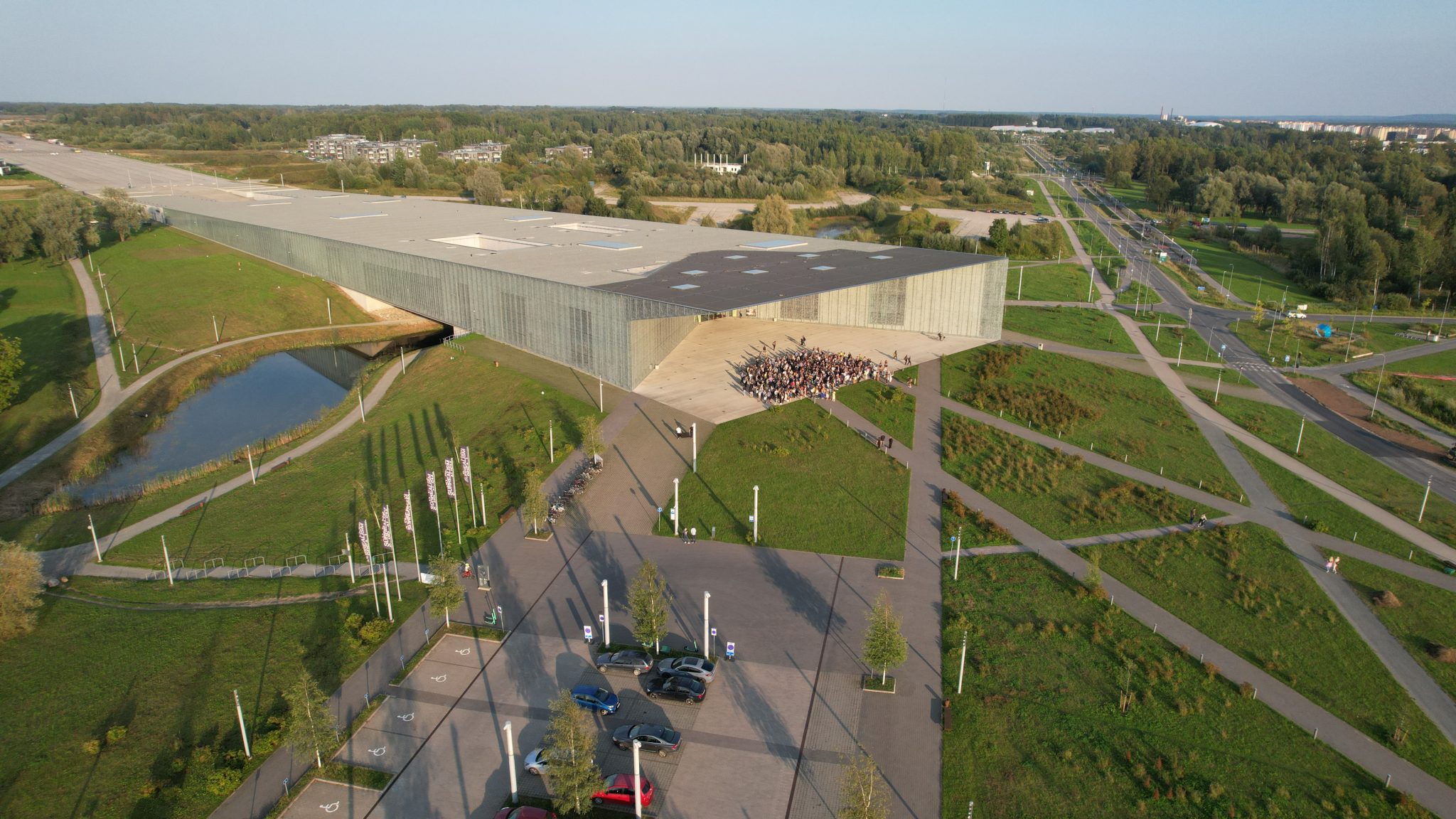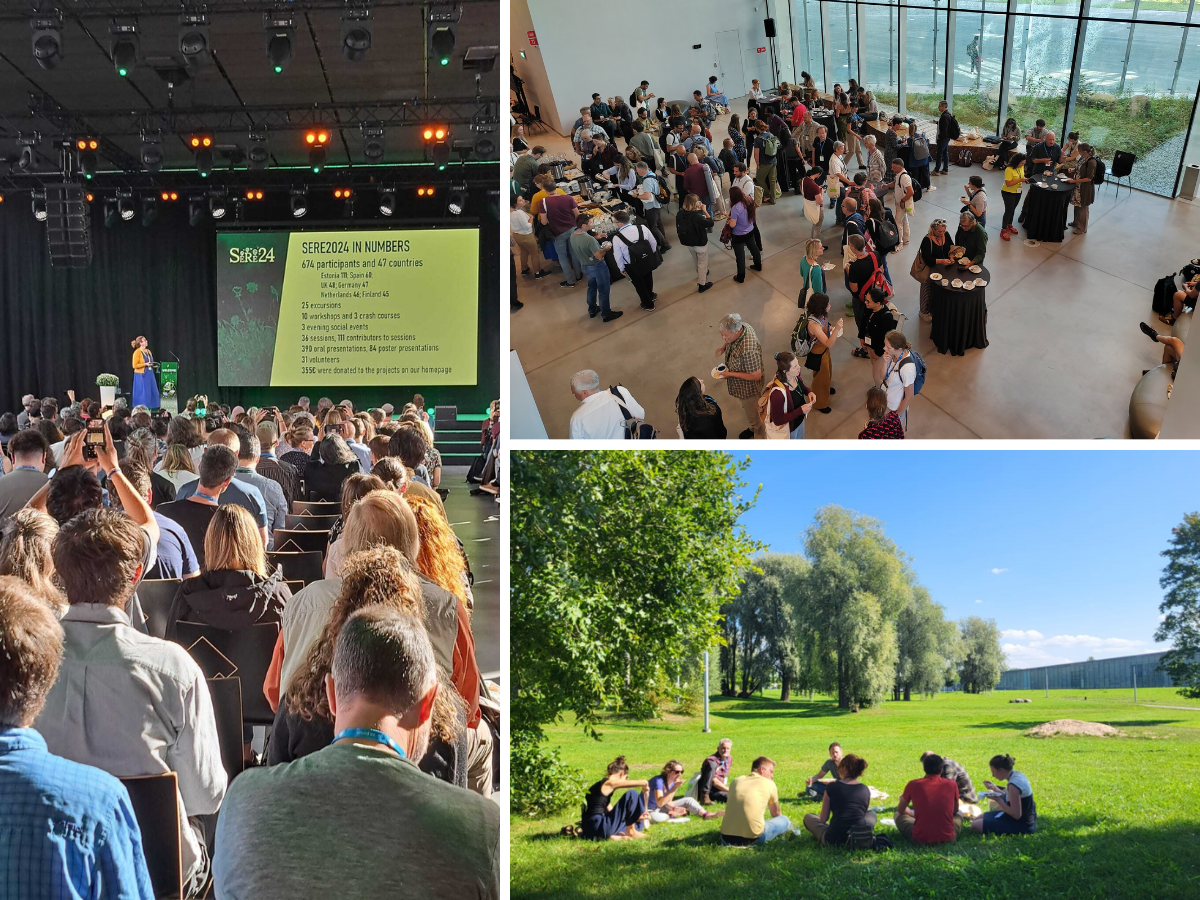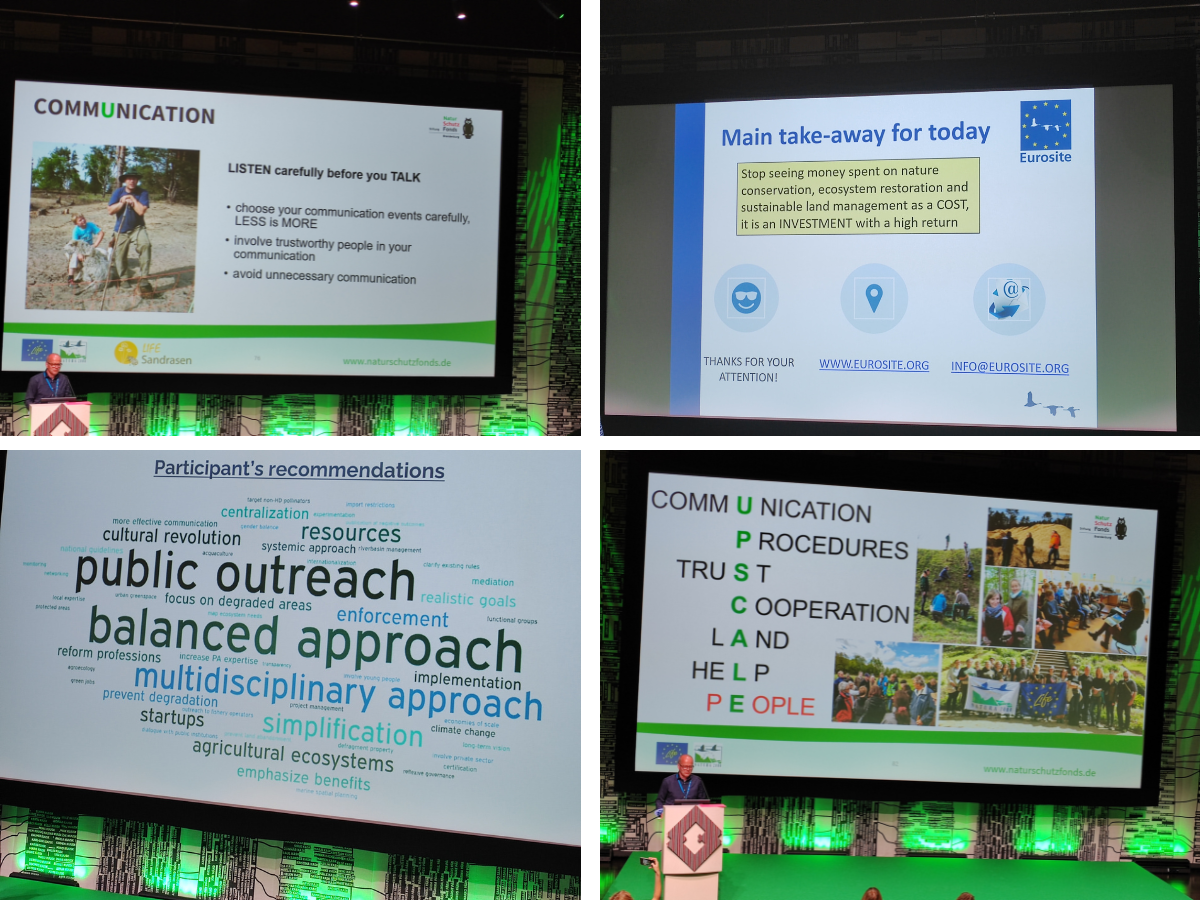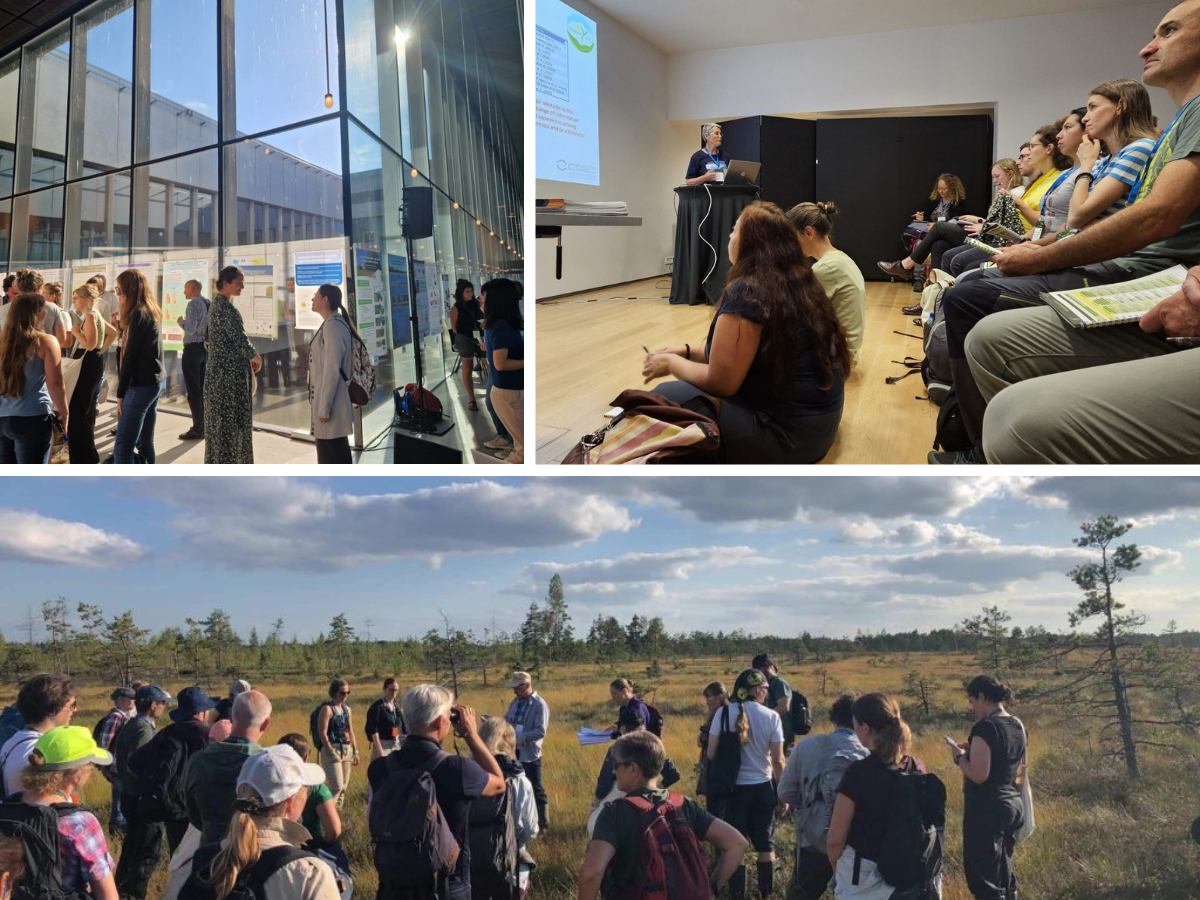The 14th European Conference on Ecological Restoration

The 14th European Conference on Ecological Restoration by the name of “Bridging Science, Practice, and Policy of Nature Restoration” was held from August 26th to 30th, 2024, in the city of Tartu, Estonia.
As part of the conference, the SERE2024 Declaration was issued, emphasizing the urgent need for effective implementation of the EU Nature Restoration Law, which came into force on August 18th, 2024. The Declaration highlights the critical role of nature restoration in addressing the climate and biodiversity crises, recognizing the Nature Restoration Law as fundamental to ensuring the well-being of future generations of Europeans.
The Declaration outlines several key recommendations for the successful implementation of the law. It calls for immediate action, utilizing existing scientific knowledge to begin restoration efforts across Europe’s ecosystems. Long-term and coordinated financing is identified as crucial, with a particular emphasis on establishing a dedicated EU fund for biodiversity protection and restoration, which is a prerequisite for attracting private capital.
The Declaration also stresses the importance of inclusive information sharing and stakeholder engagement, promoting the integration of bottom-up approaches and fostering a culture of nature restoration. It calls for the creation of ambitious, scientifically grounded national restoration plans, supported by collaboration between policymakers, scientists, and practitioners. Finally, the Declaration insists on strict monitoring, reporting, and enforcement to ensure the success of the law, with a focus on transparency and the involvement of citizen science.
The Declaration was anonymously supported by 674 participants from 47 countries, reflecting a broad consensus on the need for decisive action to restore and preserve Europe’s natural heritage.
Anja Neduk from the Hyla Association also participated in the conference, presenting the LIFE for Mauremys project with six photographs showcasing various aspects of the restoration of the Balkan Terrapin’s habitat, which will take place at multiple locations in Dubrovnik-Neretva County. Anja described her experience: "I was inspired by the creative ideas and success stories of experts from various nature restoration projects across Europe. Every workshop, educational excursion, lecture, and conversation motivated me to envision an ambitious plan not only for the continuation of the LIFE for Mauremys project but also for broader nature restoration efforts in Croatia. It was particularly helpful to hear advice from experts working on larger projects because many challenges we face in nature restoration are universal, whether we’re restoring a few ponds or bringing an entire region back to favorable ecological status."
The success of projects like LIFE for Mauremys depends on the ability to effectively promote a positive image of nature restoration among local communities, experts, and policy makers. What we learned from this conference confirmed that quality education, stakeholder engagement, and collaboration with the broader public play a crucial role in the long-term preservation and restoration of ecosystems.




